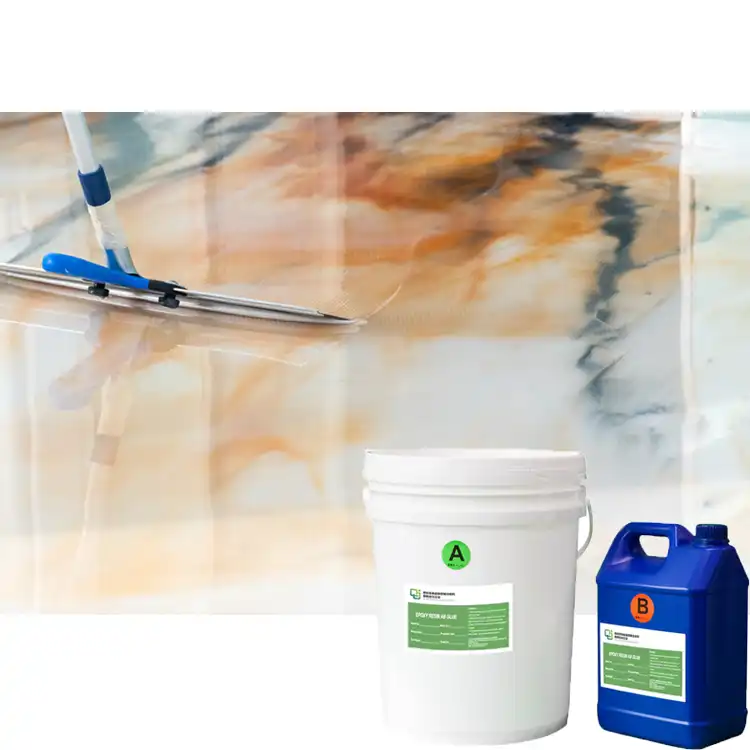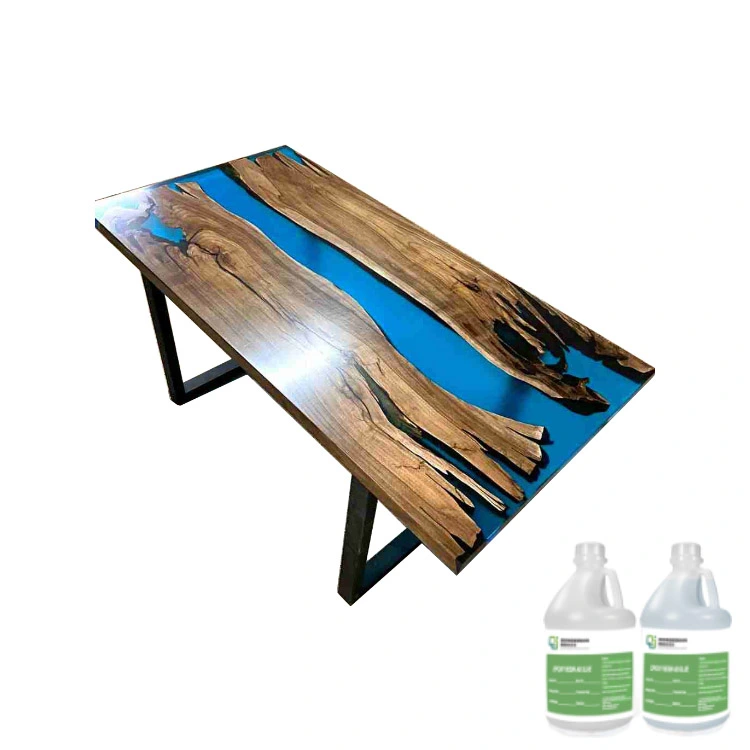What is a 3240 Epoxy Resin Sheet?
2024-11-19 17:28:55
A 3240 epoxy resin sheet is a high-performance composite material widely used in various industries for its exceptional electrical insulation properties, mechanical strength, and heat resistance. This versatile material is composed of woven glass fabric impregnated with epoxy resin, resulting in a durable and reliable substrate for electronic and mechanical applications. 3240 epoxy resin sheets are particularly valued for their ability to maintain their properties under extreme conditions, making them ideal for use in demanding environments such as aerospace, automotive, and industrial settings. These sheets offer a unique combination of electrical insulation, dimensional stability, and thermal resistance, making them an essential component in the production of circuit boards, electronic components, and other high-performance applications.
Composition and Manufacturing Process of 3240 Epoxy Resin Sheets
Raw Materials and Their Properties
The production of 3240 epoxy resin sheets involves a careful selection of raw materials to achieve the desired performance characteristics. The primary components include:
- Epoxy resin: A thermosetting polymer known for its excellent adhesion, chemical resistance, and electrical insulation properties.
- Glass fiber: Woven into a fabric, glass fibers provide mechanical strength and dimensional stability to the composite.
- Hardeners: Chemical agents that initiate the curing process of the epoxy resin.
- Accelerators: Additives that speed up the curing process and enhance specific properties of the final product.
The synergy between these materials results in a composite that exhibits superior mechanical, electrical, and thermal properties compared to its individual components.
Manufacturing Techniques
The production of 3240 epoxy resin boards involves several sophisticated manufacturing techniques:
- Prepreg preparation: Glass fabric is impregnated with a carefully formulated epoxy resin mixture.
- Layering and stacking: Multiple layers of prepreg are stacked to achieve the desired thickness and properties.
- Compression molding: The stacked layers are subjected to heat and pressure in a hydraulic press to ensure proper consolidation and curing.
- Post-curing: Additional heat treatment may be applied to optimize the material's properties.
- Finishing: The cured sheets are trimmed, sanded, and inspected for quality assurance.
These techniques ensure consistent quality and performance across batches of 3240 epoxy resin sheets.
Quality Control Measures
Rigorous quality control is essential in the production of 3240 epoxy resin boards to meet industry standards and customer specifications. Key quality control measures include:
- Raw material testing: Incoming materials are tested for purity and consistency.
- In-process monitoring: Parameters such as resin content, gel time, and viscosity are closely monitored during production.
- Physical property testing: Finished sheets undergo tests for flexural strength, dielectric strength, and dimensional stability.
- Thermal analysis: Differential scanning calorimetry (DSC) and thermogravimetric analysis (TGA) are used to assess curing behavior and thermal stability.
- Surface inspection: Visual and automated inspection techniques ensure surface quality and uniformity.
These quality control measures guarantee that 3240 epoxy resin sheets meet or exceed industry standards and customer expectations.
Key Properties and Advantages of 3240 Epoxy Resin Sheets
Electrical Insulation Characteristics
One of the primary reasons for the widespread use of 3240 epoxy resin sheets in electronics manufacturing is their exceptional electrical insulation properties. These sheets exhibit:
- High dielectric strength: Capable of withstanding strong electric fields without breakdown.
- Low dielectric constant: Minimizes signal loss and crosstalk in high-frequency applications.
- Volume and surface resistivity: Provides excellent insulation against current flow.
- Arc resistance: Ability to resist electrical arcing, enhancing safety and reliability.
These electrical properties make 3240 epoxy resin boards ideal for use in printed circuit boards (PCBs), insulators, and other electronic components where electrical isolation is crucial.
Mechanical and Thermal Properties
3240 epoxy resin sheets are renowned for their robust mechanical and thermal characteristics:
- High flexural and tensile strength: Enables the material to withstand mechanical stress without deformation.
- Dimensional stability: Maintains shape and size under varying environmental conditions.
- Low coefficient of thermal expansion: Minimizes warpage and stress in temperature-sensitive applications.
- Heat resistance: Capable of maintaining properties at elevated temperatures, typically up to 130°C or higher.
- Flame retardancy: Many formulations meet UL 94 V-0 standards for fire safety.
These properties make 3240 epoxy resin sheets suitable for use in harsh environments and high-reliability applications.
Chemical Resistance and Environmental Durability
3240 epoxy resin sheets demonstrate excellent resistance to various chemical and environmental factors:
- Chemical resistance: Withstands exposure to oils, solvents, and many corrosive substances.
- Moisture resistance: Low water absorption helps maintain electrical and mechanical properties in humid conditions.
- UV stability: Certain formulations offer resistance to degradation from ultraviolet light exposure.
- Weathering resistance: Suitable for outdoor applications with proper additives and surface treatments.
These durability characteristics contribute to the long service life and reliability of products incorporating 3240 epoxy resin sheets, particularly in challenging industrial and outdoor environments.
Applications and Industries Utilizing 3240 Epoxy Resin Sheets
Electronics and Semiconductor Industry
The electronics and semiconductor industry heavily relies on 3240 epoxy resin boards for various applications:
- Printed Circuit Boards (PCBs): Serve as the base material for multilayer and high-frequency PCBs.
- Semiconductor packaging: Used in the manufacture of chip carriers and substrates.
- Electrical insulators: Applied in transformers, motors, and other electrical equipment.
- EMI/RFI shielding: Incorporated into enclosures and housings for electronic devices.
The combination of electrical insulation, thermal management, and mechanical strength makes 3240 epoxy resin boards indispensable in modern electronics manufacturing.
Automotive and Transportation Sector
The automotive industry, particularly in the realm of electric vehicles (EVs), utilizes 3240 epoxy resin boards for:
- Battery insulation: Ensuring safety and performance in EV battery packs.
- Power electronics: Used in inverters, converters, and control modules.
- Sensor housings: Providing protection and insulation for various automotive sensors.
- Structural components: Lightweight alternatives to metal in certain non-load-bearing applications.
The material's ability to withstand vibration, temperature fluctuations, and chemical exposure makes it ideal for automotive applications.
Aerospace and Defense Applications
In the aerospace and defense sectors, 3240 epoxy resin sheets find critical applications:
- Avionics: Used in the construction of radar systems, communication equipment, and flight control electronics.
- Structural components: Incorporated into interior panels and non-load-bearing structures.
- Radomes: Providing weather protection and electromagnetic transparency for antenna systems.
- Missile components: Used in guidance systems and electronic warfare equipment.
The material's high performance under extreme conditions and its contribution to weight reduction make it valuable in aerospace and defense applications.

Conclusion
3240 epoxy resin sheets represent a pinnacle of material engineering, offering a unique combination of electrical insulation, mechanical strength, and thermal stability. Their versatility and reliability have made them indispensable in industries ranging from electronics manufacturing to aerospace and defense. As technology continues to advance, the demand for high-performance materials like 3240 epoxy resin boards is expected to grow, driving further innovation in their formulation and application. Understanding the properties and capabilities of these materials is crucial for engineers and designers seeking to optimize performance and reliability in their products.
Contact Us
For more information about our 3240 epoxy resin sheets and how they can benefit your specific application, please contact us at info@jhd-material.com. Our team of experts is ready to assist you in selecting the right material for your needs and provide support throughout your project.
References
1. Smith, J.A. (2021). Advanced Composite Materials in Electronics Manufacturing. Journal of Electronic Materials, 50(4), 1245-1260.
2. Johnson, R.B., & Lee, S.M. (2020). Epoxy Resins: Properties and Applications in High-Performance Industries. Materials Science and Engineering: R: Reports, 142, 100564.
3. Chen, X., et al. (2019). Thermal and Mechanical Properties of Epoxy-Based Composites for Electronic Packaging. Polymer Engineering & Science, 59(3), 511-520.
4. Williams, T.D., & Brown, A.C. (2018). Electrical Insulation Materials for Next-Generation Power Electronics. IEEE Transactions on Dielectrics and Electrical Insulation, 25(6), 2315-2326.
5. Garcia, M.E., et al. (2022). Advancements in Epoxy Resin Formulations for Aerospace Applications. Progress in Aerospace Sciences, 128, 100721.
6. Thompson, L.K. (2020). Quality Control and Testing Methods for High-Performance Composite Materials. In Handbook of Composite Manufacturing (pp. 567-592). CRC Press.







